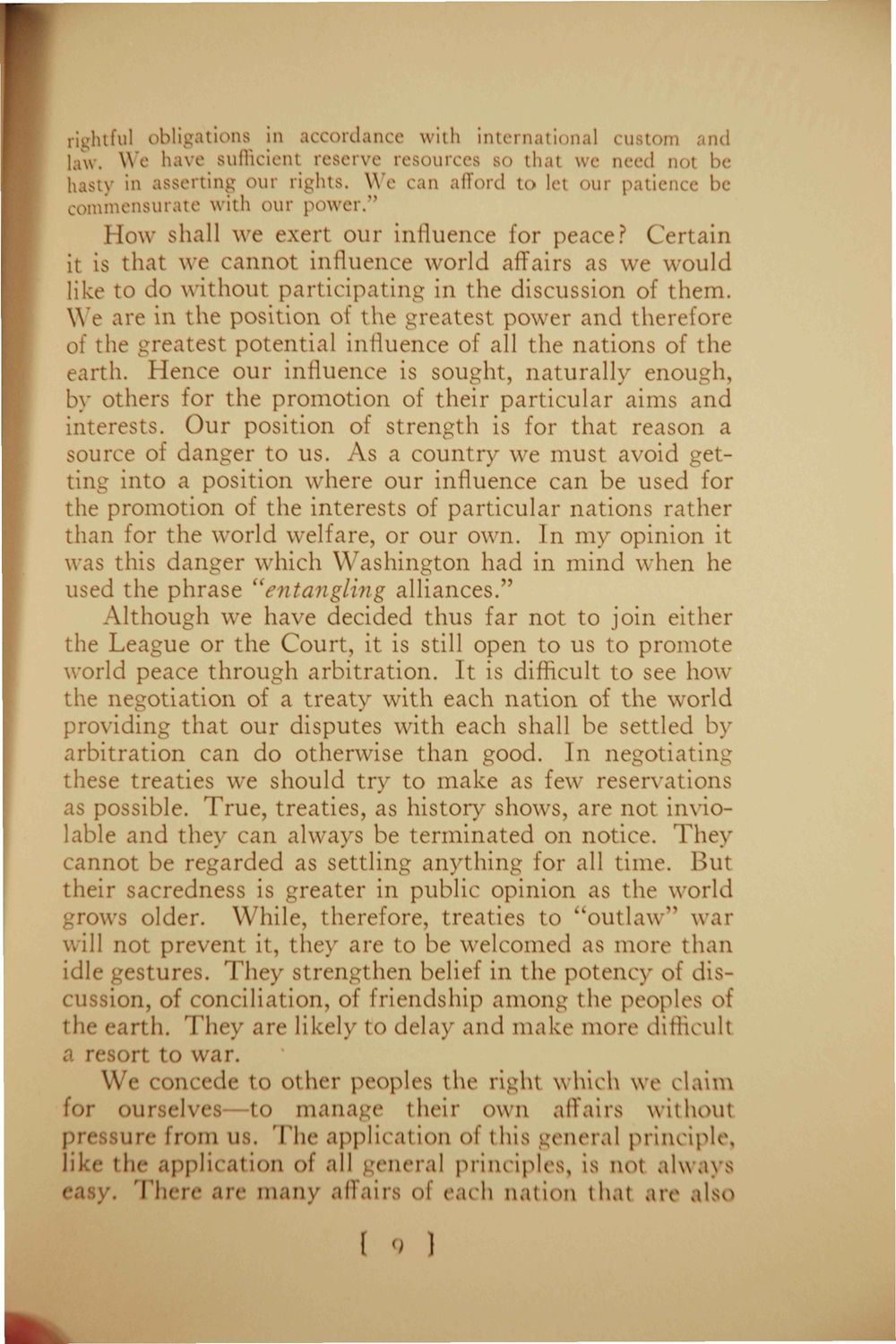| |
| |
Caption: Commencement - 1927
This is a reduced-resolution page image for fast online browsing.

EXTRACTED TEXT FROM PAGE:
rightful obligations in accordance with international custom and law. We have sufficient reserve resources SO that we need not !>• hasty in asserting our rights. We can afford to let our patience be immensurate with our power/' How shall we exert our influence for peace? Certain it is that we cannot influence world affairs as we would like to do without participating in the discussion of them. We are in the position of the greatest power and therefore of the greatest potential influence of all the nations of the earth. Hence our influence is sought, naturally enough, by others for the promotion of their particular aims and interests. Our position of strength is for that reason a source of danger to us. As a country we must avoid getting into a position where our influence can be used for the promotion of the interests of particular nations rather than for the world welfare, or our own. In my opinion it was this danger which Washington had in mind when he used the phrase "entangling alliances." Although we have decided thus far not to join either the League or the Court, it is still open to us to promote world peace through arbitration. It is difficult to see how the negotiation of a treaty with each nation of the world providing that our disputes with each shall be settled by arbitration can do otherwise than good. In negotiating these treaties we should try to make as few reservations as possible. True, treaties, as history shows, are not inviolable and they can always be terminated on notice. They cannot be regarded as settling anything for all time. But their sacredness is greater in public opinion as the world grows older. While, therefore, treaties to "outlaw" war will not prevent it, they are to be welcomed as more than idle estures. They strengthen belief in the potency of disussion, of conciliation, of friendship among the peoples of the earth. 'They are likely to delay and make more difficult resort to war. We con ede to other peoples the right which we claim for ourselves—to manage their own affairs without pressure from us. The appli( it ion of this genera] principle, like the appli< it ion of all general principles, is not always e v. There arc many affairs of each nation that are also I 9 1
| |